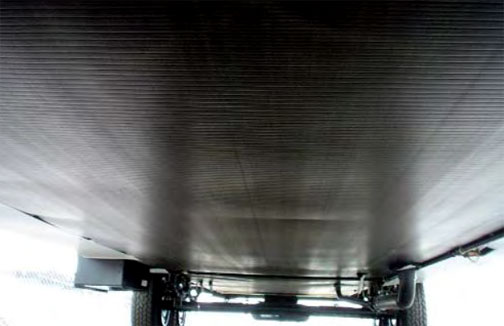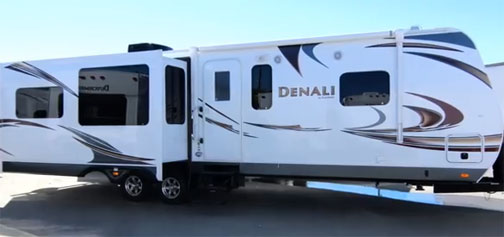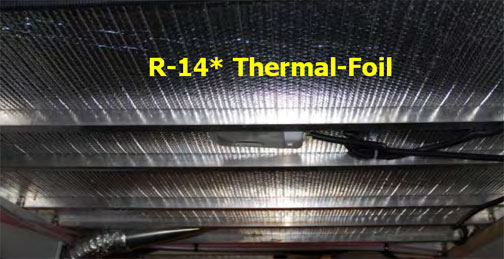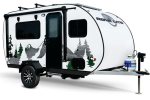Buyers Guide to Winter Travel Trailer Campers
Guidelines regarding some of the most important aspects of a winter-ready travel trailer....
For many RV-ers it is still unthinkable to go on the winter camping trip.
And there is a real reason for that – the overwhelming majority of travel trailers are not designed for winter.
Most of us entertaining the idea of winter camping will think about potential “discomfort” due to low temperatures.
But the real problem of winter RV-ing is related to the RV itself. More precisely – it is the danger of damage to water tanks and pipes at freezing temperatures.
It is also true that these days there are more and more enthusiasts of winter outdoor activities among RV-ers. And there reason is also very simple – it is an interesting and fun way to spend your vacation in contact with Mother Nature.
Although some RV-ers are happy owners of travel trailers designed specifically for winter temperatures (or at least “all-seasons”) , most are desperate to find a way to use their standard campers.
Below you will find guidelines regarding some of the most important aspects of a winter camper. It may help you to make adequate modifications to your existing travel trailer and make your winter adventure a memorable story.

Canyon Trail - if you do not see much, its due to the enclosed "underbelly" ; if thermally insulated and forced-air heated then you can "hit the road" towards the Arctic!
Source: www.gulfstreamrvtrailers.com
Important Features to Look For in Winter Travel Trailers
All windows need to be sealed off, check whether the trailer has adequate insulation around the windows to prevent any heat loss. All windows should have double insulation, on the inside and outside of the window. This provides adequate air tight seal.
All storage tanks have to be fitted with heating materials to ensure that the contents do not freeze. Trailers built for use in winter will mostly have storage tanks that are concealed to minimize exposure to cold weather. Additionally, all tanks will be heated from the trailer’s furnace or with electronic heat pads. These tanks will also be covered with insulating material to prevent undesirable heat loss in the cold weather. Dumping valves for both grey and black water should also be covered with insulating material to prevent any freezing and subsequent blockage.
Another important modification to look out for is skirting. Skirting prevents drafts from coming into contact with the trailers undercarriage and thus carrying away heat. The skirting material provides insulation to prevent heat loss from under the trailer.
In the winter, water pipes are prone to freezing due to the below zero temperatures. This means that they have to be insulated against the cold weather. These trailers usually come with insulated plumbing to minimize heat loss to the cold air and thus freezing of water within the pipes.
And now some practical tips of "how to.." prepare your RV for winter trip!
Where to Buy Winter Travel Trailers
Since Canadian winters are extremely cold, manufacturers operating here build trailers suited for winter travel. This therefore means that those in search of a travel trailer to be used in winter can find multiple choices by browsing through Canadian-made trailers.
Winter Travel Trailer Campers Cost and Maintenance

Dutchmen Denali 287RE Travel Trailer is a 4-Season RV thanks to:
R-40 insulation in roof and floor, R-9 in sidewalls and R-24 in slide-out floors as well as heated "underbelly" to protect water tanks...
Expect to pay a premium price for a fully loaded winter travel trailer. Prices range from low 40k$ for a normal sized travel trailer which comfortably holds 4 passengers, and up to 80k$ for an extensive camper that can hold up to ten people.
Since campers used in winter have above average heat requirements it is important to ensure that you have an adequate supply of gas. These trailers should come with extra gas tanks to provide adequate heating for the storage tanks as well as the trailer itself through the furnace. These extra storage tanks represent an additional expense for the maintenance of the camper. Other expenses involve the maintenance of all the insulating materials on the trailer.

Canyon Trail - R-14 Thermal Foil used for floor insulation
Source: www.gulfstreamrvtrailers.com
Common Risks Affecting Winter Travel Trailer Campers
Due to the fact that these trailers operate in extremely cold weather, it is important to have some knowledge on the risks they may suffer from. If any seals around the trailer become loose, then heat will easily be lost to the cold outside air. It is also important to remember that an air tight environment where air is not circulating may pose health risks to the occupant.
.
About Us / Privacy Policy / Resources
Go to: Pop-up Travel Trailers and RVs


